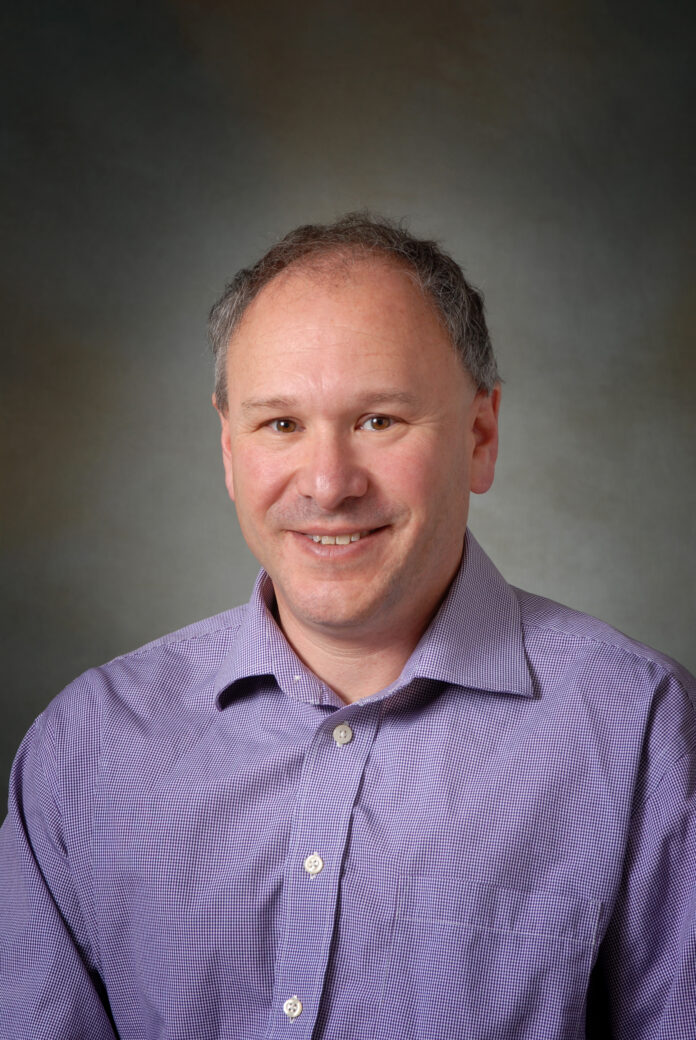Dr. Peter Cohn was recently named physician in chief of the cardiovascular center at Charlton Memorial Hospital in Fall River. Cohn served as interim physician in chief of the center since June of 2018. He is an invasive cardiologist who performs diagnostic catheterizations and pacemaker and defibrillator implants, and has worked with Southcoast Health since 2011.
PBN: What’s next for the Cardiovascular Care Center in terms of programs and treatments?
COHN: Our goal is to continually expand our services to provide our patients with the best, most-advanced care possible.
Some of our efforts include increasing patient access to the latest procedures and technologies through our structural heart program. We are currently excited about two technologies that are/will be seeing an expanded [Food and Drug Administration] approval: the Transcatheter Aortic Valve Replacement and the MitraClip.
We are one of the busiest systems in the region for volume of TAVR implementations, and our program has become well-respected, both in the community and the industry. Our reputation led to us being invited to become one of the first programs to use the next-generation Edwards valve, which is the newest TAVR valve.
Southcoast was also the first health system in southern New England to offer MitraClip therapy for patients with certain kinds of valve disease, and is among the top four MitraClip centers in New England. We are looking forward to the pending FDA approval of MitraClip for a larger patient population so that even more of our patients can benefit from this technology.
Southcoast Health was just the third health system in New England to offer the Watchman. Run collaboratively through our Structural Heart and Electrophysiology programs, we have become one of the busiest implanters in the region. Based on our performance, we were selected to participate in a clinical trial comparing Watchman to a new device that treats the same condition – risk of stroke due to atrial fibrillation. We are awaiting results.
We also have one of the few electrophysiology programs to offer hybrid AFib ablation, a procedure that combines minimally invasive surgery and catheter ablation in the same setting, preventing the need for open-heart surgery for patients who did not see an improvement in their condition with conventional ablation.
On tap for the near future is the expansion of interventional cardiac catheterization services in the area of total blocked artery procedures by using advanced wiring and stenting.
These developments are noteworthy because these procedures are uncommon in the community health care setting. You typically see them in major metropolitan or academic health care institutions. Having them right here on the south coast is a real benefit to patients because it prevents difficult and costly travel.
PBN: Has serving as the head of a cardiac program changed your perspective on how best to care for patients?
COHN: My philosophy has always been to offer the patient the best care possible. In this position, I have the opportunity to further advocate for our clinicians and work closely with the administration to ensure that we can offer the providers and the patients the best tools and technology available. With that being said, I remain dedicated to working closely with patients, making rounds in the hospitals and staying true to my practice and passion as a clinician.
PBN: Is wearable technology impacting how cardiologists are treating patients?
COHN: Some of the smart tech and health technologies being developed that monitor heart rates, vital signs and other biometric information are changing some of our practices in amazing ways. Health monitoring that previously took place in a doctor’s office, can now be done by individuals from anywhere. This ability increases the collaborative nature of health care and encourages patients to be more active participants in their own care. Patients that require close monitoring can even use devices that transmit heart activity to their smartphone and subsequently to their physician.
PBN: Are cardiologists at Southcoast Health working with patients or primary care doctors on preventative care?
COHN: We partner very closely with primary care providers, especially when we start looking at risk factors for cardiovascular disease, including the treatment of hypertension, elevated cholesterol, smoking cessation and diabetes.
One of the major projects currently in play at Southcoast Health is the collaboration of all four care centers – primary care, cardiac, medicine and surgery – on the treatment of diabetes to provide the most comprehensive treatment possible.
PBN: Are you beginning to see an influx of patients as baby boomers age, and are many of the cardiac issues you’re seeing related to lifestyle?
COHN: It doesn’t matter what generation a person is born into, it’s never too early or too late to be aware of heart health and the factors and decisions that affect it. There are genetic factors that increase the risk of cardiovascular disease but lifestyle remains one of the biggest contributors.
We are seeing efforts with children that encourage regular exercise and a healthy diet, to develop good habits early in life – that’s great! We also need to prevent children and adults from beginning a smoking habit and provide cessation support to those who do smoke. Weight and stress management, and getting regular checkups with a primary care provider round out the practices that lead to good or improved heart health. There never is a bad time to begin taking care of your heart.
Elizabeth Graham is a PBN staff writer. Email her at Graham@PBN.com.












